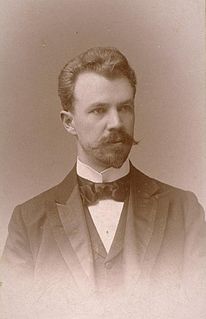A Quote by Andrew Motion
When Keats says: 'Axioms in philosophy are not axioms until they are proved upon our pulses', what he means is that we don't necessarily believe what a poem is saying if it comes out and tells us in an absolutely head-on, in-your-face way; we only believe it to be true if we feel it to be true.
Related Quotes
There are and can be only two ways of searching into and discovering truth. The one flies from the senses and particulars to the most general axioms, and from these principles, the truth of which it takes for settled and immovable, proceeds to judgment and to the discovery of middle axioms. And this way is now in fashion. The other derives axioms from the senses and particulars, rising by a gradual and unbroken ascent, so that it arrives at the most general axioms last of all. This is the true way, but as yet untried.
[It's] troubling because it reminds us how difficult it is to prove anything. We like to pretend that our experiments define the truth for us. But that's often not the case. Just because an idea is true doesn't mean it can be proved. And just because an idea can be proved doesn't mean it's true. When the experiments are done, we still have to choose what to believe.
"Do not believe anything merely because you are told it is so, because others believe it, because it comes from Tradition, or because you have imagined it. Do not believe what your teacher tells you merely out of respect. Believe, take for your doctrine, and hold true to that, which, after serious investigation, seems to you to further the welfare of all beings."
Donald Trump is a master salesman. And he creates his own reality. So if he tells you, "This is a middle-class tax cut, and I, Donald Trump, won't benefit," he expects you to believe that. It doesn't matter that it's not true. It's he said it, you're supposed to believe it. And that's how he's run his entire administration. If he says it, that makes it true.
It cannot be that axioms established by argumentation should avail for the discovery of new works, since the subtlety of nature is greater many times over than the subtlety of argument. But axioms duly and orderly formed from particulars easily discover the way to new particulars, and thus render sciences active.
Freeman denied the claim that he was a “man of God”, saying that “the question of faith is whatever you actually believe is. We take a lot of what we're talking about in science on faith; we posit a theory, and until it's dis-proven we have faith that it's true. If the mathematics work out, then it's true, until it's proven to be untrue.






































